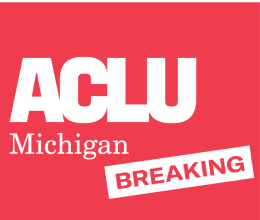
Carrie Pueblo and her same-sex partner, Rachel Haas, decided to have a child together by artificial insemination, with Ms. Haas serving as the parent who would carry the child. At the time, Michigan law made it illegal for the couple to marry. The child, born in 2008, was raised by both mothers, but after the parents’ relationship fell apart, Ms. Haas denied Ms. Pueblo all contact with their child. Ms. Pueblo filed suit in family court seeking shared custody and parenting time, but both the trial court and Michigan Court of Appeals held that because she is not the child’s biological mother, she did not have standing. In May 2022 the ACLU of Michigan led a coalition of organizations in filing a friend-of-the-court brief urging the Michigan Supreme Court to hear the case, arguing that parents who were unconstitutionally denied the right to marry should be able to invoke a judicial doctrine known as “equitable parenthood” to seek custody and parenting time, and that when a same-sex couple uses assisted reproduction, legal parentage can be established for the non-birth parent under Michigan’s assisted reproduction statute. In July 2023 the Michigan Supreme Court agreed, ruling that parents who were in a same-sex relationship and who would have married but for Michigan’s unconstitutional prohibition on their marriage have standing to seek custody and parenting time. Importantly, the Court also said that Michigan’s family law statutes must be read in a gender-neutral manner, which will protect both married and unmarried LGBTQ+ parents. (Pueblo v. Haas; ACLU Attorneys Miriam Aukerman, Jay Kaplan, Dayja Tillman, and Dan Korobkin.)
